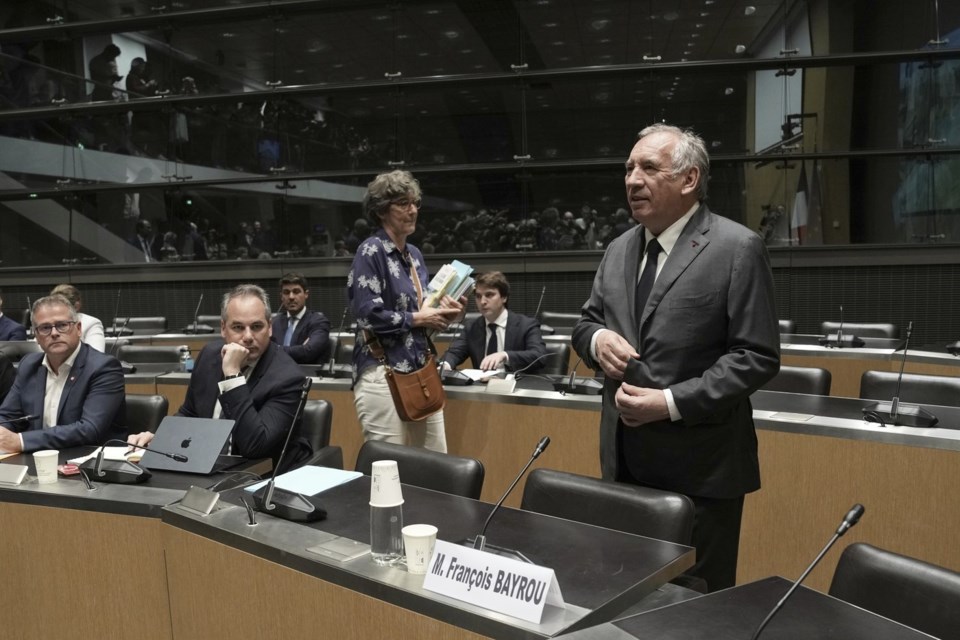PARIS (AP) — French Prime Minister François Bayrou on Wednesday denied covering up decades of alleged abuse at a Catholic school where several of his children studied, telling a parliamentary commission he had “hidden nothing” and saying opponents are exploiting the case for political gain.
“This isn’t about truth,” Bayrou said, who has been accused of hiding the truth about the private Catholic school Notre-Dame de Bétharram in southwestern France where he long has been an elected official. “It’s about destruction," he said.
He opened his sworn testimony by acknowledging the alleged victims, calling a recent wave of revelations “a hidden continent” and saying: “Finally.”
An inquiry commission of the National Assembly, France’s lower house of parliament, is investigating allegations of physical and sexual abuse over five decades at the school near the town of Pau.
Bayrou has been the mayor of Pau since 2014 and continues to hold that office since becoming prime minister five months ago. He has been a member of parliament from that area for about 20 years and was the national education minister from 1993 to 1997.
Over 200 complaints have been formally filed since February 2024 over alleged abuse at the school, including dozens of alleged rapes by priests, said Alain Esquerre, the spokesperson for a group of victims.
Critics have accused Bayrou of lying to parliament — a serious offense under French law. In February, Bayrou told lawmakers he had “never been informed of violence (or) sexual violence” at the school. Days later, he admitted knowing of a 1996 incident involving a slap and said he had ordered an inquiry about it at the time.
He maintained that he only learned of sexual abuse from local newspapers. The judge and investigators, he added, “kept everything secret.”
When asked about changes in his story, Bayrou replied: “My version hasn’t changed.” He insisted that, as education minister, he had no more information than what was in the newspapers.
The commission also questioned him about a former teacher, Françoise Gullung, who claimed to have warned him and his wife. “Madame Gullung told me nothing,” Bayrou said. “Her claim is a fabrication.”
Bayrou also has been contradicted by Christian Mirande, a judge who handled a 1998 case involving Father Carricart, the school’s former director who was accused of sex abuse.
The judge told the inquiry that Bayrou visited him at the time and expressed concern for his son, who was a student at the school. Bayrou initially denied the meeting, then later described it as “fortuitous.”
Carricart was handed preliminary rape charges in 1998 and died by suicide before trial.
The case has become deeply personal for the prime minister. Bayrou’s eldest daughter, Hélène Perlant, last month revealed she was among children who were abused, saying a priest beat her at summer camp when she was 14.
Now 53, Perlant said she never talked about it to her father or anyone else until the recent release of a book in which she tells her story. “I remained silent for 30 years,” she said.
Esquerre, the spokesperson for the victims, himself a former student and victim of abuse, told the inquiry commission in March that “it was a time of terror, and no one could imagine that we were in the hands of priests who were also the aggressors.”
Showing a printout with a list of names, Esquerre said: ”I am holding here a list of all the priests over the last 70 years, all of them aggressors, all these priests. And so, there still is a number of victims who will, little by little of course, join the already substantial number of plaintiffs.”
Sylvie Corbet, The Associated Press



